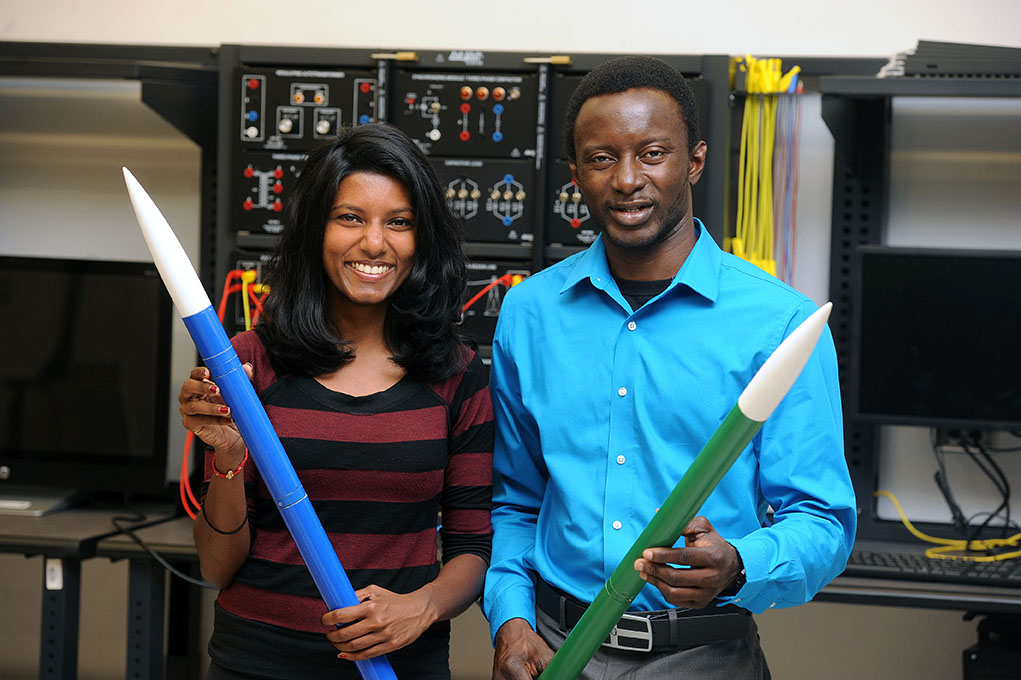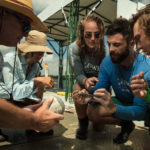UWF engineering students earn second place in NASA Hybrid Rocket Competition
A team of two engineering students at the University of West Florida placed second out of 20 competing teams in the NASA Hybrid Rocket Competition held April 12 in Bunnell, Fla. This was the first time a team from UWF has participated in the competition, which is sponsored by the NASA Florida Space Grant Consortium, Florida Space Institute and the North East Florida Association of Rocketry.

Thenmozhi Elayaperumal, senior computer and electrical engineering major, and Abdul Huuda, senior electrical engineering major, competed against teams from top universities with aeronautical and mechanical engineering programs to build and launch a hybrid propelled rocket. The teams competed in two categories: launching the rocket to the maximum altitude, and flying the rocket as close to 2,000 feet in altitude as possible. Other participating schools included the University of Florida, University of Central Florida, Embry-Riddle Aeronautical University, University of South Florida, Florida Institute of Technology, University of Miami, Daytona State College and Florida International University.
Under the mentoring of Dr. Bhuvana Ramachandran, assistant professor of electrical and computer engineering, Elayaperumal and Huuda entered the competition in September 2013 and were selected to receive a grant totaling approximately $1,200, which they used for parts and supplies, electronics and motors for their rockets. For more than seven months, the students conducted research and tests on different types of rockets before building two hybrid rockets. Prior to the competition, they performed a static motor test and two test launches to ensure their hybrid rockets met the needed specifications.
“With this project, we were able to put our learning ability to the test by researching and teaching ourselves a completely different type of science and engineering,” Elayaperumal and Huuda said in a joint statement. “We’ve gained a lot of practical knowledge regarding aerodynamics and other general skills that are transferable to our major related projects and future careers. Additionally, we feel this is a pride to UWF because, as a two-person team with no background in rocket science, or aeronautical or mechanical engineering, we were able to research, build and launch our rockets with successful results and precision.”
For additional information about the Hybrid Rocket Competition, visit floridaspacegrant.org/
To learn more about the UWF Department of Electrical and Computer Engineering, visit uwf.edu/cas/cas-departments/


